Recently, the 18th International Association for China Planning (IACP) Conference was held in Zijingang Campus of Zhejiang University, which was co-hosted by Zhejiang University and the International Association for China Planning (IACP), organized by School of Public Affairs at Zhejiang University, China Institute of Urbanization, Zhejiang University and Architectural Design & Research Institute Co., Ltd. (UAD) of Zhejiang University, co-organized by College of Civil Engineering and Architecture at Zhejiang University. With the theme of " Planning and Governance at Crossroads for Sustainable Development Goals Cities ", this annual conference brought together many well-known experts and scholars at home and abroad to discuss the frontier issues of urban sustainable development. Experts and scholars from 96 well-known universities and research institutions at home and abroad attended the meeting, including University of Pennsylvania, Cornell University, UCLA, Tsinghua University, Peking University, Zhejiang University, Shanghai Jiao Tong University, Chinese University of Hong Kong, Cambridge University, University College London, National University of Singapore and Seoul National University.
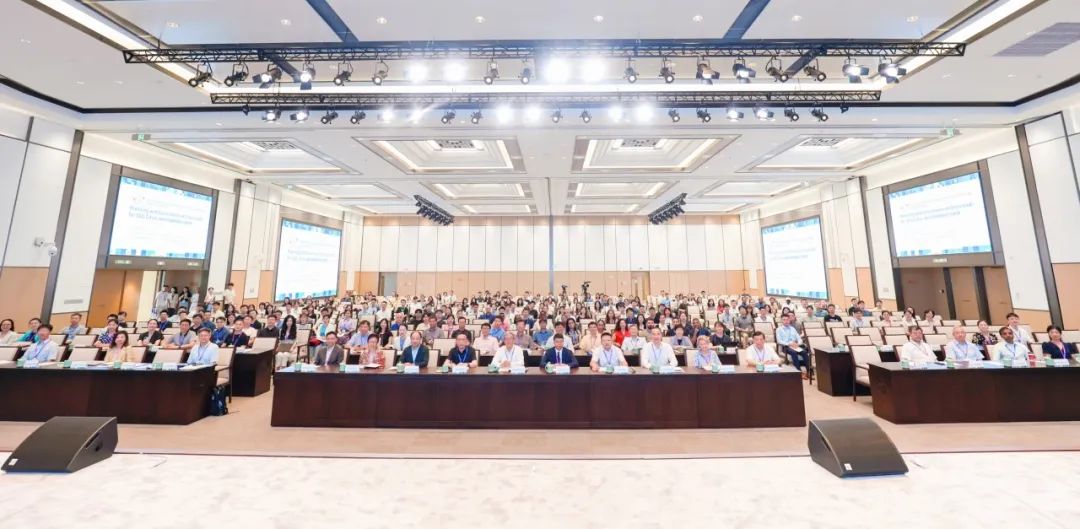
Shen Liyong, Party Secretary and Associate Dean of School of Public Affairs at Zhejiang University, presided over the opening ceremony. Zhou Jianghong, Vice President of Zhejiang University, said in his welcome speech that under the background of accelerating urbanization in the world today, how to ensure urban economic development—while realizing environmental protection and social equity, building a livable, suitable and sustainable city—is an important topic of this annual conference. Fan Jun, Member of the Party Leadership Group and Vice Chairman of Zhejiang Federation of Humanities and Social Sciences Circles, stressed that urban construction is an important engine of modernization, and Zhejiang Province has made remarkable achievements in promoting urbanization and urban governance. The convening of this annual conference will further promote the research and practice in the field of urban planning and governance in Zhejiang Province. Liu Zhilin, Chair of the International Association for China Planning and Professor of Tsinghua University, said that international exchanges and cooperation are essential to handle with the common challenges faced by global urban development. This annual conference is not only a platform for academic exchanges, but also an important opportunity to promote the sustainable development of the city. Wang Jian, Dean and General Manager of The Architectural Design & Research Institute Co., Ltd. of Zhejiang University, introduced the research results in urban planning and governance from Architectural Design and Research Institute of Zhejiang University, and said that the institute would continue to work hard to promote the sustainable development of the city.
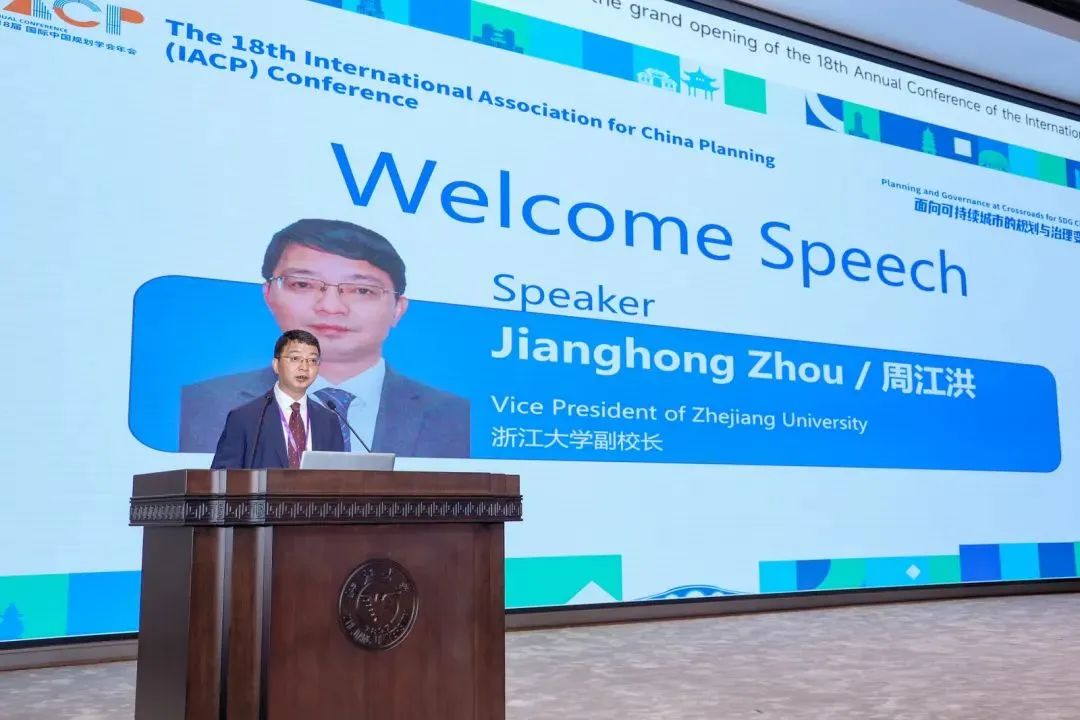
Zhou Jianghong, Vice President of Zhejiang University
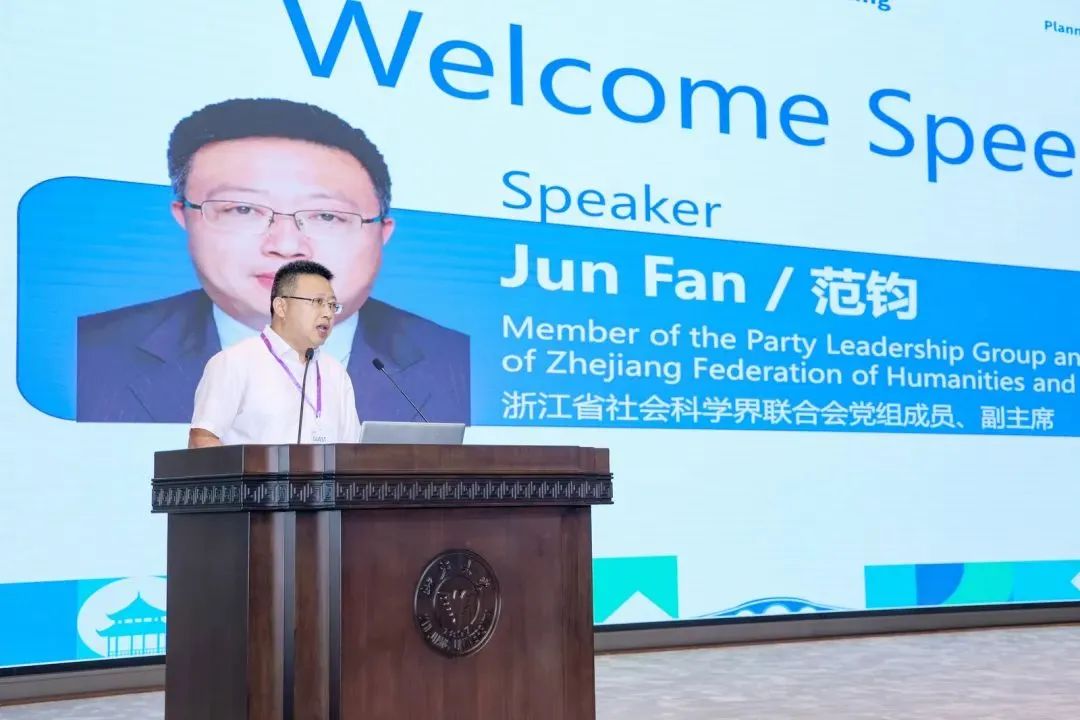
Fan Jun, Member of the Party Leadership Group and Vice Chairman of Zhejiang Federation of Humanities and Social Sciences Circles
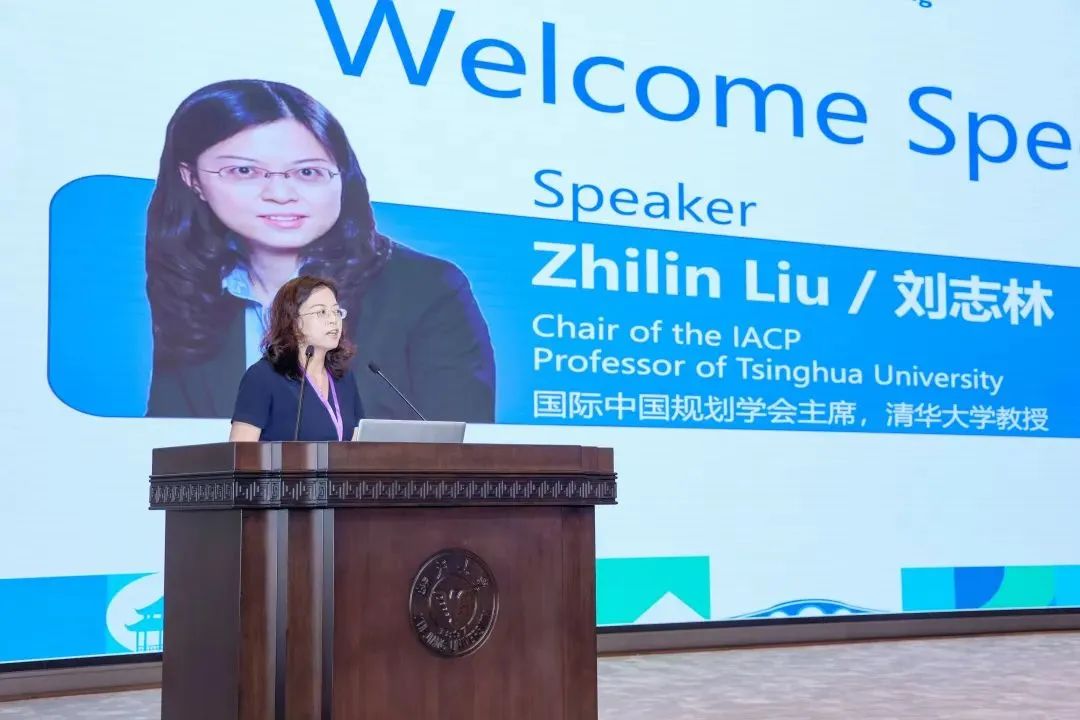
Liu Zhilin, Chair of theInternational Association for China Planning and Professor of Tsinghua University
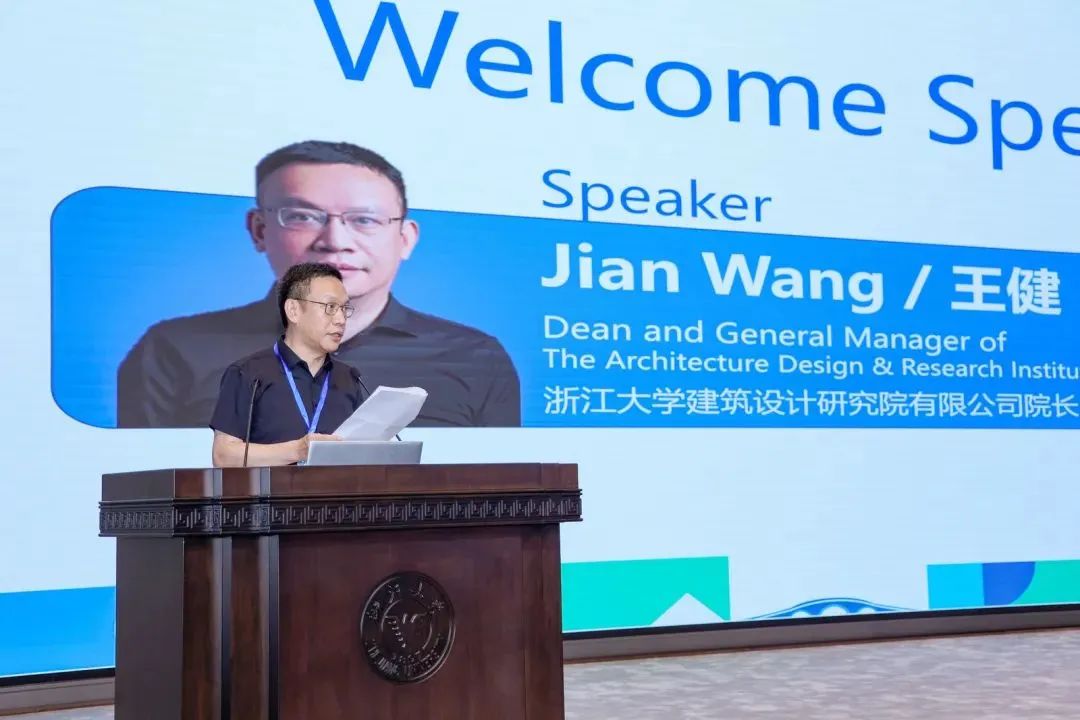
Wang Jian, Dean and General Manager of The Architectural Design & Research Institute Co., Ltd. of Zhejiang University.
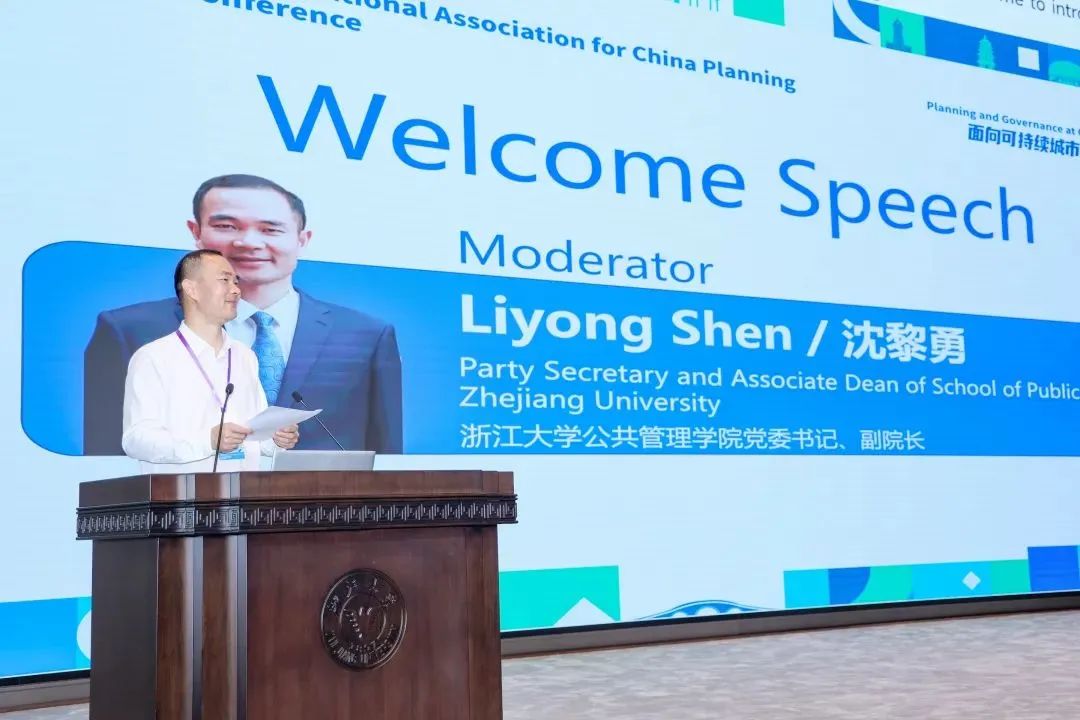
Shen Liyong, Party Secretary and Associate Dean of School of Public Affairs, Zhejiang University
The keynote speech session was hosted by Shen Guoqiang, Head of the Department of Urban and Rural Planning, School of Architecture and Engineering, Zhejiang University. Wu Zhiqiang, Academician of China Academy of Engineering and professor of Tongji University, introduced the application of artificial intelligence in urban planning in detail in his speech entitled "AI 4 PLANNING", and emphasized that artificial intelligence technology can help planners to better design and manage cities and improve the scientificity and humanization of planning. He showed a series of cases of urban planning using AI technology, including the creation of smart city model and the application of real-time data analysis platform. Academician Wu Zhiqiang pointed out that with the help of artificial intelligence, urban planning can not only deal with complex problems more efficiently, but also achieve more accurate environmental protection and social equity.
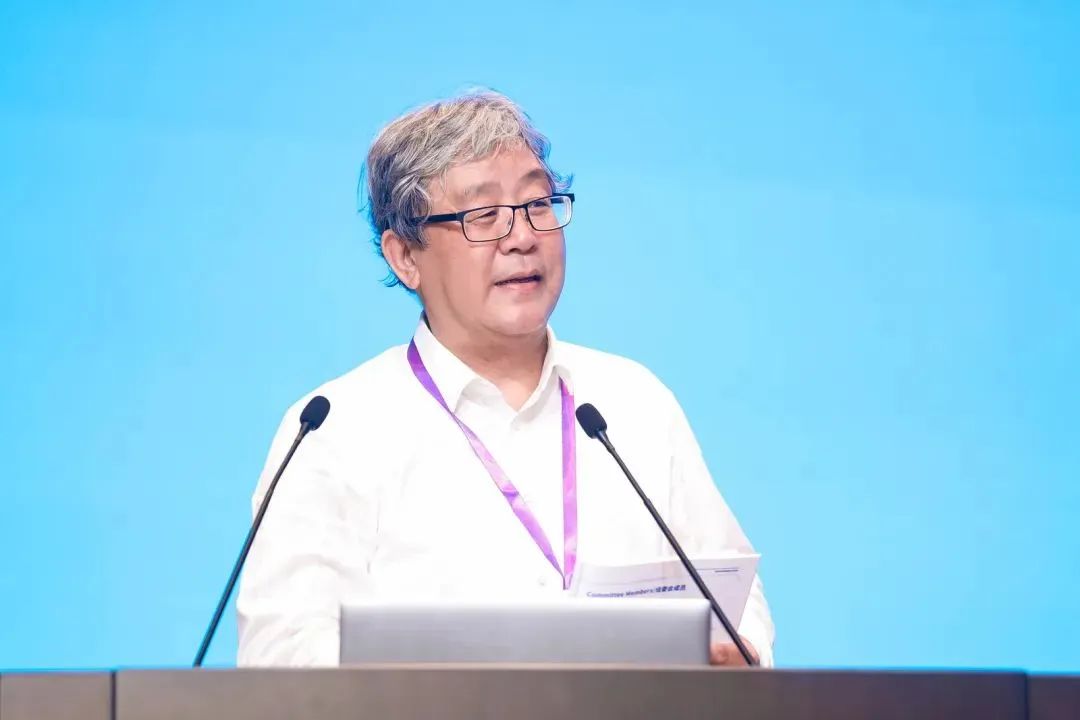
Wu Zhiqiang, Academician of China Academy of Engineering and Professor of Tongji University
Eugenie Birch, Honorary Professor of Nussdorf, Department of Urban and Regional Planning, Weitzman School of Design, University of Pennsylvania, delivered a speech entitled "The SDGs ten years in the international association of Chinese planners". Professor Birch reviewed the progress of the United Nations Sustainable Development Goals (SDGs) in the past decade, and put forward new ideas for future urban planning and governance. She elaborated on seven specific goals of SDG 11 (Sustainable Cities and Communities), including providing suitable housing, improving public transportation, reducing urban sprawl, protecting cultural and natural heritage, enhancing disaster response capability, reducing environmental pollution and increasing accessibility of public spaces. Professor Birch emphasized that cities play a key role in achieving these goals, and countries need to strengthen cooperation to jointly promote the sustainable development of cities worldwide.
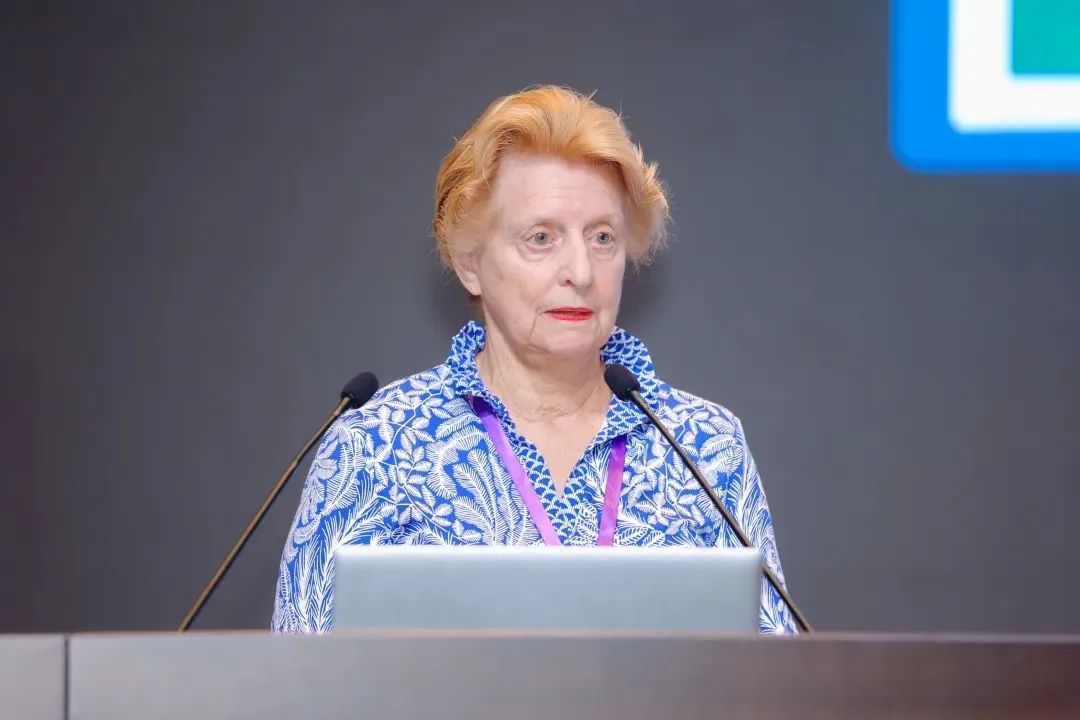
Eugenie Birch, Honorary Professor of Nussdorf and Dean of Graduate School, Department of Urban and Regional Planning, Weitzman School of Design, University of Pennsylvania.
He Daji, Dean of School of Humanities and Social Sciences, City University of Hong Kong, pointed out in his speech entitled "Urban research and sustainable development: room for more collaboration between planning and public administration" that urban research is closely related to sustainable development, and cooperation in the field of planning and public management is essential to achieve the goal of urban sustainable development. He introduced the latest research results of City University of Hong Kong in this field and shared some successful cooperation cases. He called on academic circles and government departments to strengthen communication and cooperation, and solve the complex problems faced by urban development through multidisciplinary comprehensive research.
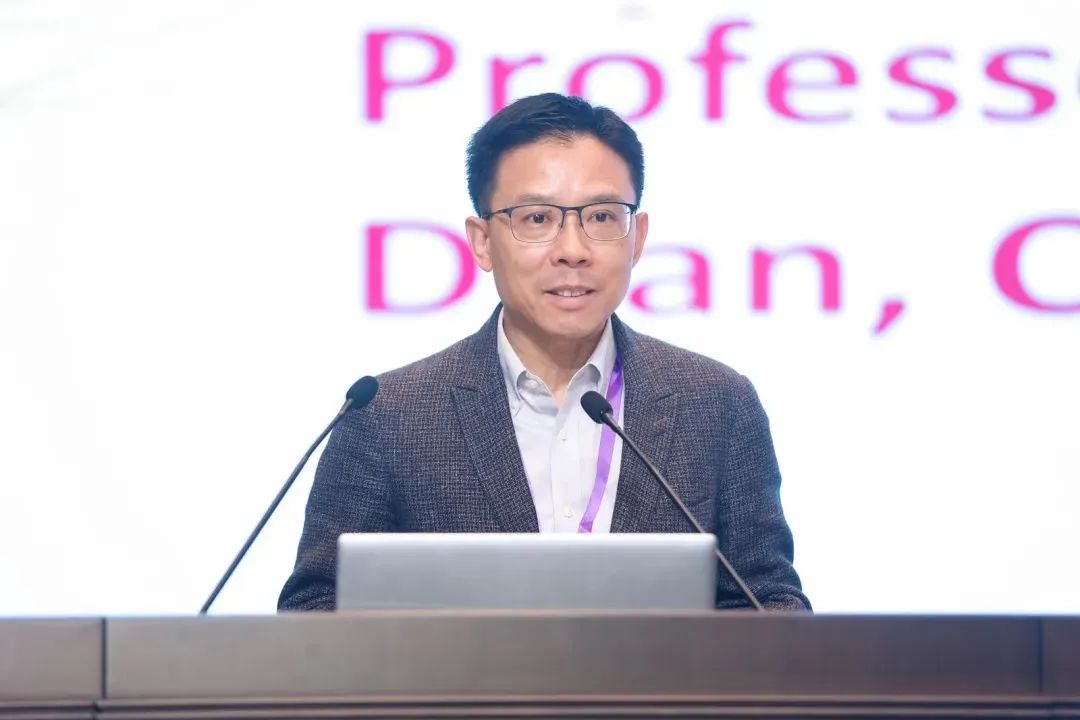
He Daji, Dean of School of Humanities and Social Sciences, City University of Hong Kong
Zhao Zhirong, Dean of School of Public Affairs at Zhejiang University, delivered a speech entitled "Towards Urban Fiscal Resilience: A Concerted Framework". He put forward the conceptual framework of urban financial resilience, and introduced the related research progress and application prospect. He pointed out that with the continuous advancement of urbanization, urban finance is facing unprecedented challenges. In order to achieve sustainable development, we must establish a sound financial system and improve the resilience of urban finance. He elaborated on the specific measures to improve the financial resilience of cities, including optimizing the fiscal revenue structure, improving fiscal transparency and strengthening risk management.
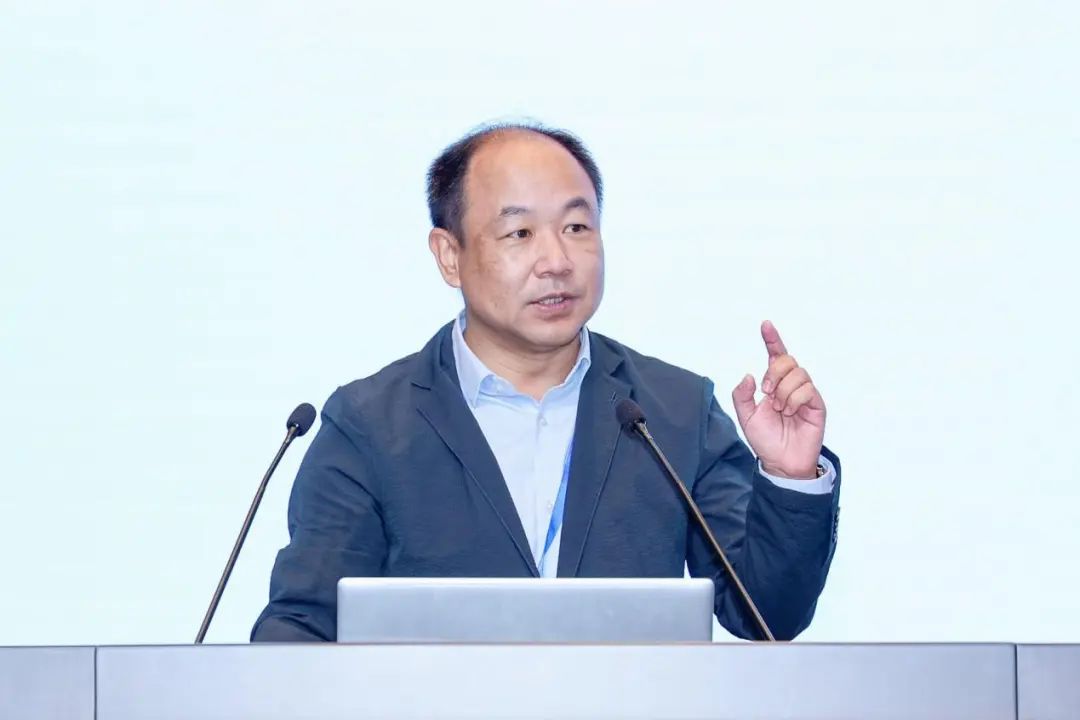
Zhao Zhirong, Dean of School of Public Administration, Zhejiang University
The round-table discussion session was presided over by Zhang Weiwen, Associate Dean of School of Public Affairs at Zhejiang University and Dean of China Institute of Urbanization, Zhejiang University. During the round-table discussion, the guests discussed the challenges and opportunities faced by the current urban development around the theme of "Planning and Governance at Crossroads for Sustainable Development Goals Cities ". Guests attending the round-table discussion include: Sun Tao, Professor and Dean of School of Humanities and Social Sciences, Harbin Institute of Technology (Shenzhen); Ceng Peng, Professor and Vice President of School of Architecture, Tianjin University; Pan Qisheng, Professor and Former Head of Department of Public Affairs and Planning, Arlington, Texas, USA; Shen Tiyan, Professor of School of Government, Peking University, Executive Dean of Urban Governance Research Institute, Vice Dean of Beijing Development institute, Peking University. Liang Sisi, associate professor and vice president of School of Architecture, Tsinghua University; Hu Lingqian, Professor and Head of Department of Urban Planning, University of Florida, former chairman of IACP; Zhang Yi, professor and Dean of School of Public Administration, Huazhong University of Science and Technology; Dong Wei, professor and vice president of School of Architecture and Design, Harbin Institute of Technology; Zhu Ling, professor and director of graduate school of the Department of Political Science, University of Houston, USA, and current chairman of the China-America Association for Public Affairs. Zhang Lei, Professor and Head of the Department of Urban Planning and Management, School of Public Administration, Renmin University of China; Chen Na, Associate Professor and Head of the Department of Public Administration, School of Political and Public Affairs Management, Sun Yat-sen University (in no particular order).
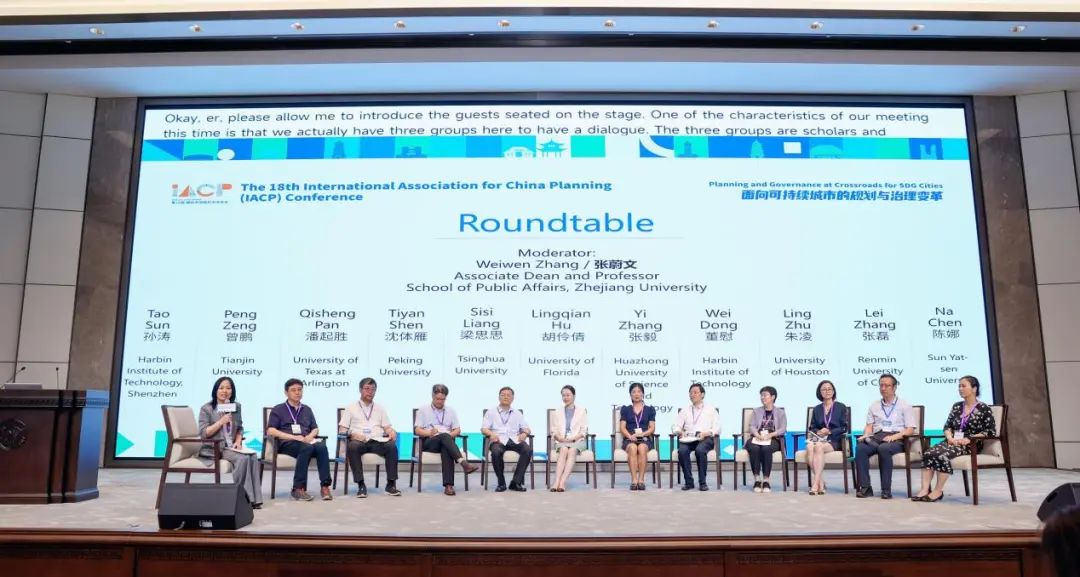
During this annual conference, nearly 100 parallel forums were held, covering sustainable development goals and strategic actions of Chinese cities, national spatial system and national spatial planning, urban-rural overall planning and regional coordination, participatory planning and collaborative governance, housing and community development and community governance, social equity and inclusive cities under population change, environmental planning and environmental governance, new trends in urban renewal, reshaping urban transportation system, reducing carbon and coping with climate change, reshaping urban and rural communities, and applying science and technology in new cities. Hundreds of scholars shared their latest research results, and the guests at the conference had close exchanges and heated discussions.

The closing ceremony of the 18th annual conference of International Association of China Planning (IACP) was successfully held in the lecture hall of the main library of Zhejiang University. The closing ceremony consists of three parts: keynote speech, award ceremony and handover ceremony. Professor Liu Zhilin, President of the International Association of China Planning and Professor of Tsinghua University, as the moderator, reviewed the highlights and achievements of the conference and emphasized the importance of academic exchanges and cooperation.
Cindy Fan, professor of geography at UCLA and Vice Provost of International Studies and Global Engagement Affairs, gave a speech on "Hukou: Reforms, Mismatch and Household Strategies". She revealed the new changes of built environment, farmers' income sources and family lifestyles in rural China, through in-depth study of China's "hukou" system, providing a new perspective for interpreting the urbanization of agricultural transfer population and the reform of household registration system.
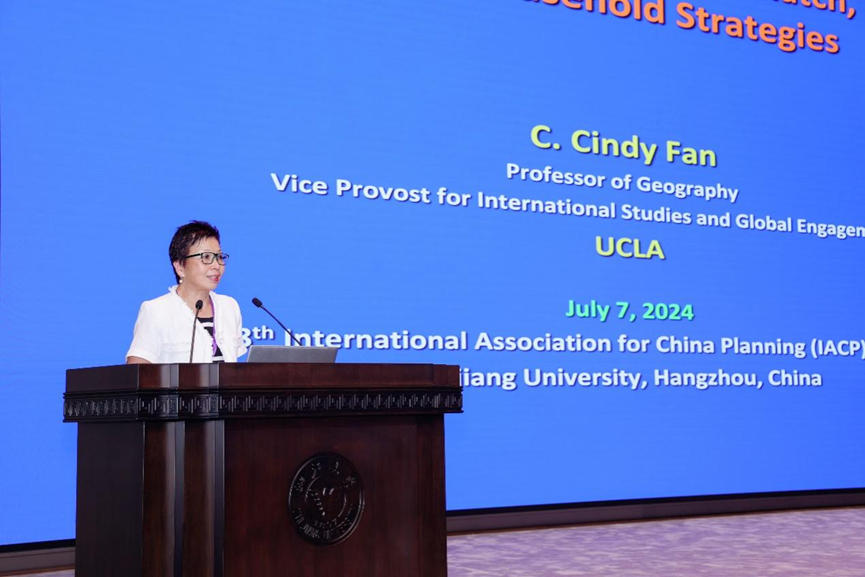
Cindy Fan, Professor of Geography and Associate Provost of International Studies and Global Participation at UCLA.
Gu Hao, Secretary of the Party Committee of Directly Subordinate Group of Zhejiang Provincial Department of Natural Resources and the First Class Inspector, gave a keynote speech on the topic of "Consolidating the Planning Foundation and Improving the Management Level of Planning Implementation". From the perspectives of factor guarantee, urban function, historical context and style, he shared the experience and thinking of Zhejiang Province in the "multi-regulation integration" reform, and emphasized the promotion strategy of planning preparation and rural planning management.
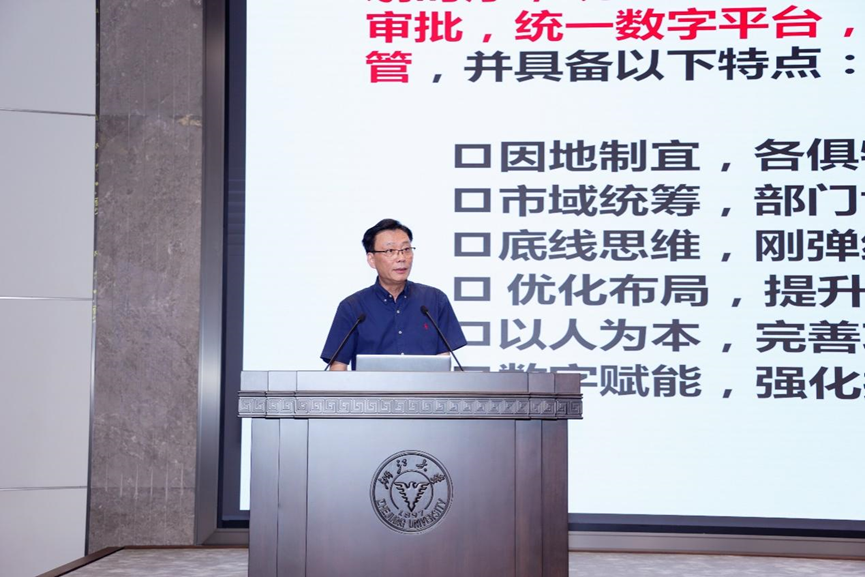
Gu Hao, Party Secretary and First Class Inspector of directly under the authority, Zhejiang Provincial Department of Natural Resources.
Zhang lei, Professor at the School of Law and Law of Northeastern University and dean of the Institute of Urban and Rural Community Construction of Northeastern University, focused on the development of urban and rural public governance. He proposed that the discipline of urban and rural public governance should be people-oriented, and comprehensively analyzed the construction logic of the discipline of urban and rural public governance from the subject proposal, research scope, development direction to implementation path and working mechanism, and emphasized that the future discipline construction should closely focus on people's needs and well-being to promote fairness and efficiency in the process of urban-rural integration.
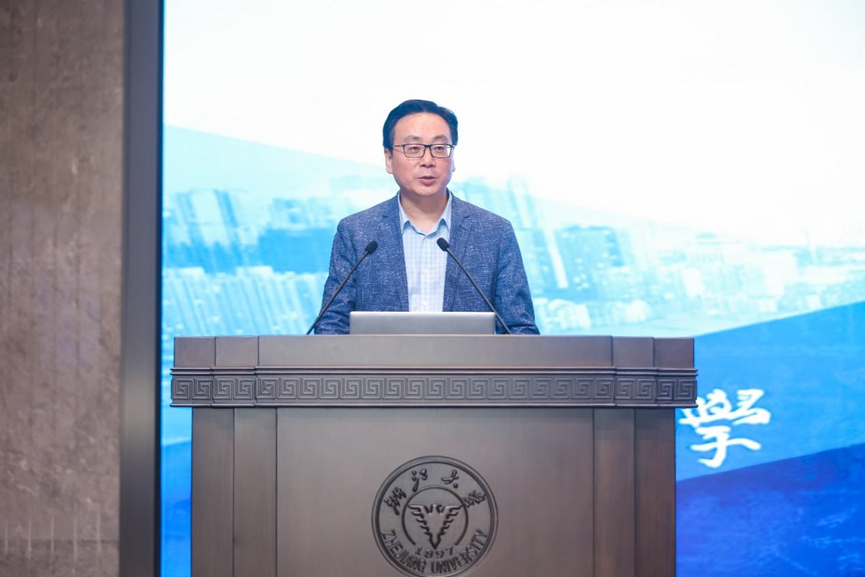
Zhang lei, Professor of the School of Law and Law of Northeastern University and Dean of the Institute of Urban and Rural Community Construction of Northeastern University.
Liu Zhi, Director of Urban Development and Land Policy Research Center of the Peking University-Lincoln Research Institute Center, gave a keynote speech entitled "Fiscal, Ethical and Urban Sentimental Considerations". He is concerned about the ethical issues in China's urban planning, and thinks that urban planning must be supplemented by security policies to compensate the affected groups fairly. In addition, he also discussed the emotional cost in the process of urban planning, and called for the inclusion of broader social emotional factors in planning decisions to ensure the temperature and humanistic care of urban development.
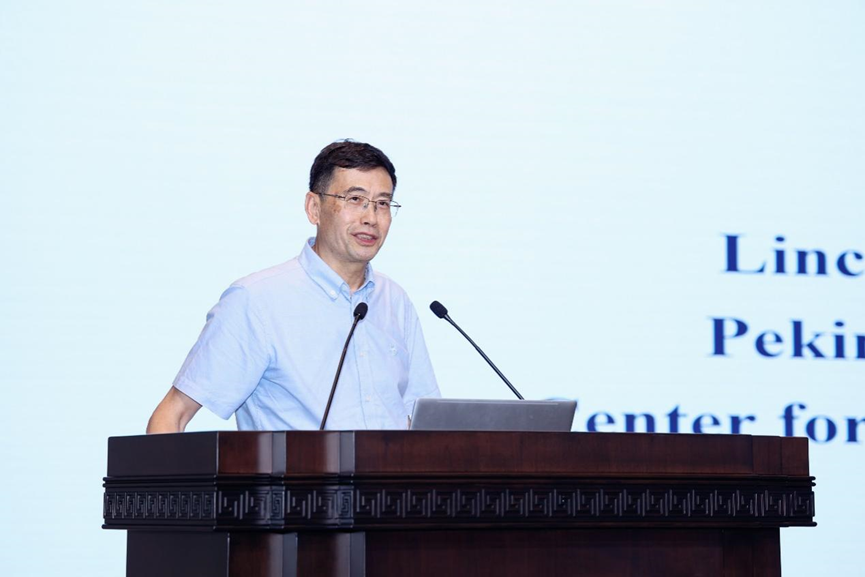
Liu Zhi, Director of the Center for Urban Development and Land Policy Research of Peking University-Lincoln Research Institute Center.
After the keynote speech, Chen Zhenhua, Associate Professor of Ohio State University and Co-chairman of IACP, presided over the closing ceremony of the conference. He thanked all the guests, scholars for their research and sharing, and all the staff. The awarding ceremony was hosted by He Ying, Associate Professor of Geography Department of Chinese University of Hong Kong and director of IACP, on behalf of the organizing committee. Professor Liu Zhilin, Professor Shen Qing and Professor Zhang Ming presented awards to several outstanding students and young scholars respectively. Experts affirmed the hard work and academic achievements of several scholars in related fields, and put forward higher expectations for them.
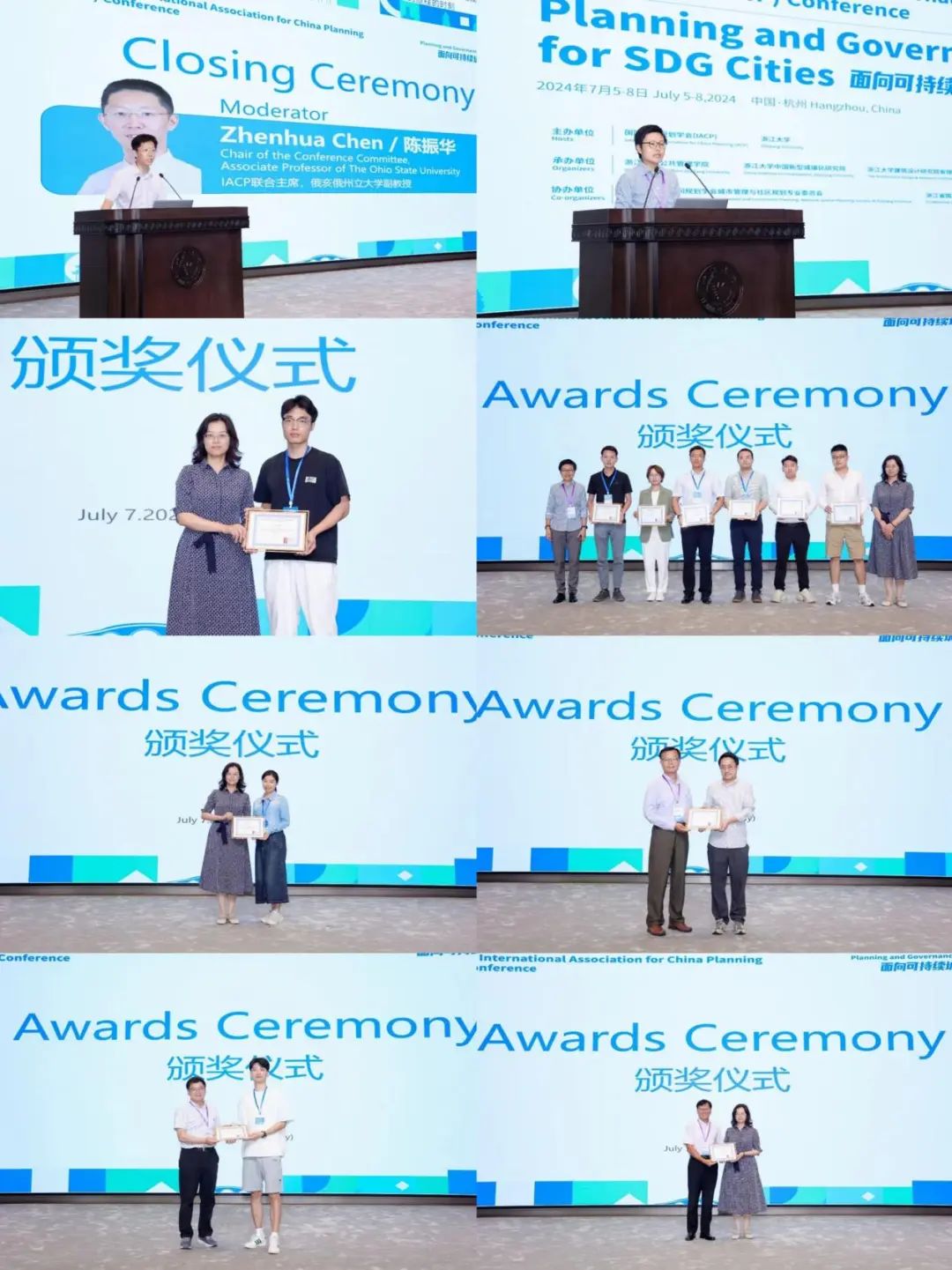
At the end of the closing ceremony, on behalf of the School of Public Affairs at Zhejiang University, Dean Zhao Zhirong sent the "Hangzhou Initiative" to IACP and the industry to jointly build a public value and public interest-oriented China Urban Affairs Academic Network (CUAN), calling on the academic circles to join hands to explore the broad prospects of interdisciplinary integration.

The success of IACP annual conference not only promoted the communication and cooperation among urban planners around the world, but also provided valuable wisdom and strength for promoting urban sustainable development and governance innovation. The conference ended successfully with warm applause. We look forward to writing a new chapter in the next annual conference and creating a better future together.


